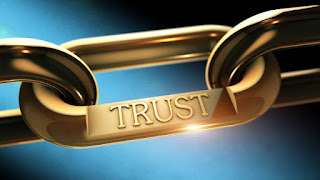America Has a Trust Problem, Your Neighborhood is the Solution
“Trust is to capitalism what alcohol is to wedding receptions,” suggests Jerry Useem in an article in The Atlantic last November, “a social lubricant ... If trust is sufficiently low, economic growth is unachievable.”
Public trust, specifically of the federal government, began to erode in the 1960s. The series of unfortunate events in the following decades — wars, Watergate, economic struggles, impeachments, ever-deepening political divisions, fake news and real news — only contributed to a steady decline of public confidence in the federal government.
During the last two years, like so many other social conditions that pre-existed the COVID pandemic, the level of trust hit an all-time low.
Our national distrust is not only aimed at Washington, D.C. According to a 2019 Pew Study, almost two-thirds of Americans believe trust in each other is falling.
On the other hand, when social trust improves, so does interpersonal trust. This can lead to economic growth. However, Americans’ trust in each other dropped from 45% in 1973 to just 30% in 2014. (My guess is it is even lower now).
Useem thinks that had trust among Americans been stronger during that time frame, more like New Zealand, for example, “(our annual GDP per capita would) be $16,000 higher.”
Trust is a significant ingredient of what can be called “social capital.” Just as an individual needs financial, relational, and labor resources to start and grow a business, a society needs financial, relational, and labor resources to grow and flourish. It only makes sense that a collective loss of trust, particularly at the scale we are now experiencing, would be felt in economic terms.
The economy is just one of many indicators of human flourishing, but there are others, such as family stability, mental health, upward mobility, education, and creativity. Trust is critical in each of these aspects of social capital.
As Useem wrote in the Atlantic article, “A trust spiral, once begun, is hard to reverse.” But what choice do we have but to confront it? We must be agents of reconciliation in our spheres of influence (our neighborhoods).
To bring this issue home, you must ask yourself if you trust your immediate neighbors. If the answer is no, the next question is, do you even know your neighbors? If you do not, then get to know them. What can you do to build that trust if you already know them?
Improving the levels of trust in your neighbor are the first place to start working. After that, expand the work to your church, workplace, or other social circles.
If you are unclear on how to develop trust or how to trust others because of your own issues, then there are some great resources on that topic. One of my favorites is, “The Speed of Trust” by Stephen M. R. Covey. It is available at the library and is a good place to start.





Comments
Post a Comment